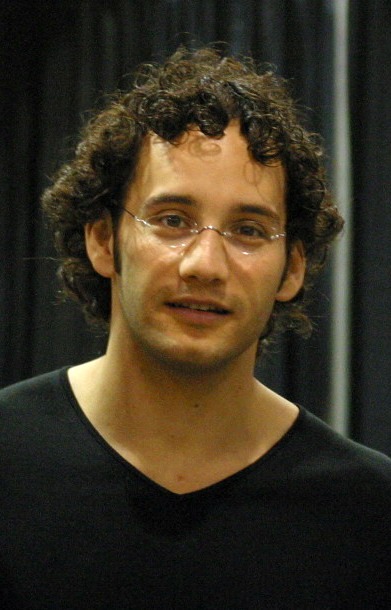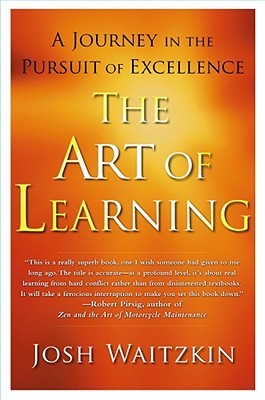The Art of Learning Summary
<1 min read ⌚
 An Inner Journey to Optimal Performance
An Inner Journey to Optimal Performance
Don’t be scared all the time, be courageous and confront your weaknesses – but avoid becoming too obsessed with them.
It’s relatively hard to maintain a perfect balance; it is helpful if you look your weaknesses from the perspective of your strengths.
In this book summary, we will briefly convey Josh Waitzkin’s message!!
Who Should Read “The Art of Learning”? And Why?
Self-inquiry is a mystery because no one can precisely explain awareness. You can only look from awareness (by removing your ego), but you cannot look at awareness. This process takes time and energy.
Self-sacrifice it is vital to evolve into a self-aware individual. Tai chi and chess represent the same thing. Yin and Yang make us aware that not everything is perfect nor bad. Balance is the key to success; avoid making mistakes to become a better person or player.
Self-development books can be interpreted from different angles based on person’s culture, beliefs, and tradition.
“The Art of Learning” invites anyone it doesn’t matter what your opinion about chess or tai chi is. The book is much more than a manual for games; it is a way of life. It expands your knowledge and expertise in areas that reach far beyond your craziest imagination. Every book has its purpose and its goal!
About Josh Waitzkin
 Josh Waitzkin is an American born (Jewish) chess player or precisely a national champion; tai chi master who has won a world championship in push hands. He was born on December 4, 1976, in New York City U.S.A.
Josh Waitzkin is an American born (Jewish) chess player or precisely a national champion; tai chi master who has won a world championship in push hands. He was born on December 4, 1976, in New York City U.S.A.
In 1993 and 1994 Joshua won the Junior Chess Championship and established himself as one of the greatest young strategists of his time. During his time in Dalton School, he led the team to 7 consecutive championships. As a young man, Waitzkin started practicing tai chi.
His love blossomed in 2004 when he won the world championship in Taiji Push Hands. As an author, he wrote two books: Attacking Chess and The Art of Learning.
“The Art of Learning Summary”
At first, Josh Waitzkin talks about a question that has to be answered – What are your thoughts on chess and tai chi? What do you know or what you’ve heard about them?
Do they have any similarities or hardly any?
Tai Chi is a Chinese martial art discipline, which is practiced for health benefits and inner satisfaction (it relies on yin and yang philosophy). Chess was invented for war purposes, to sharpen the minds of those able to play it.
Is this just another conflict between Easterners and Westerners?
Ancient scripts tell us that Europeans created this beautiful and intellectual board game in which various figures (characters) can be moved in different directions to outsmart different opponents. This is not a battle between East and West; two cultures merge to create one “deadly” combination.
Here’s what you should know:
Chinese -Tai chi represents movement training with lots of unique techniques capable of imparting spiritual knowledge, physical health and enables tai chi experts to defend themselves if such situation occurs.
Nevertheless, on the surface, you can’t notice any similarities since the one is physical movement discipline and the other one is a strategy game.
The real inter-relation between these two is buried deep beneath the surface. The two disciplines have a common ground; the lessons they teach and preach are based on the same key elements such as discipline, patience, respect, and dignity.
Both subjects are prone to battle, but not a fight against someone or something. In chess as in tai chi the mistakes count, movement of a piece is your ticket to victory or defeat, and a player must transform its mindset into a more strategic one.
What is the key?
In tai chi, for instance, each opponent tries to outsmart the other one by using patience, discipline, and determination as key factors for achieving victory. Self-inquiry is what lies beneath the surface. In both games or disciplines; the key is to go beyond your limits; identify your opponents’ weaknesses and used them.
Author Josh Waitzkin speaks about two complexed mysteries and exceptional disciplines: chess and tai chi, Chinese martial art.
His mastery of chess guides him still through life; he was a national youth champion in chess and a world champion in tai chi. These titles gave him the credibility to freely express the similarities that exist between these two.
In “The Art of Learning” book the theories are designed to help the readers in many different ways by answering many different mysteries. The book is also enriched with plenty of learning techniques capable of helping individuals in any industry.
Even though his story is written in an engaging way it lacks theoretical speculation, however, his theories are more than capable of expanding reader’s knowledge in numerous subjects.
Key Lessons from “The Art of Learning”
- Meditation is key
- Practice makes perfect
- Don’t be afraid to lose
Meditation is key
It is one thing to have a private, peaceful and quiet place for meditation; it is something else to apply that peacefulness in combat. So every person’s imperative must be to learn how to meditate anywhere, at any time. Transform yourself completely and understand the true meaning of happiness.
Practice makes perfect
Obviously, greatness requires patience and determination. However, there is one thing more important than these two- Practice! When you face your opponent openly (no matter the game), you’ll have to put your skill to the test. It is impossible to win if you employ predictable moves and strategies. Instead, a real master is flexible and has plenty solutions.
Don’t be afraid to lose
What is the best way to improve? The only way would be to play or confront superior opponents. Courageous people know how to lose, they are not afraid of defeat, so they are willing to face stronger opponents in pursuance of real knowledge and wisdom.
Like this summary? We’d Like to invite you to download our free 12 min app, for more amazing summaries and audiobooks.
“The Art of Learning” Quotes
Musicians, actors, athletes, philosophers, scientists, writers understand that brilliant creations are often born of small errors. Share on X Instead of running from our emotions or being swept away by their initial gusts, we should learn to sit with them, become at peace with their unique flavors, and ultimately discover deep pools of inspiration. Share on X It is rarely a mysterious technique that drives us to the top, but rather a profound mastery of what may well be a basic skill set. Share on X Mental resilience is arguably the most critical trait of a world-class performer, and it should be nurtured continuously. Share on X But as with all skills, the most sophisticated techniques tend to have their foundation in the simplest of principles. Share on XOur Critical Review
Even if you are not Chess or Tai Chi fan, we promise that you will not wish for this book to end. Our judgment is based on numerous facts, including unique info about the similarities between the East and the West.
Emir is the Head of Marketing at 12min. In his spare time, he loves to meditate and play soccer.


 An Inner Journey to Optimal Performance
An Inner Journey to Optimal Performance




